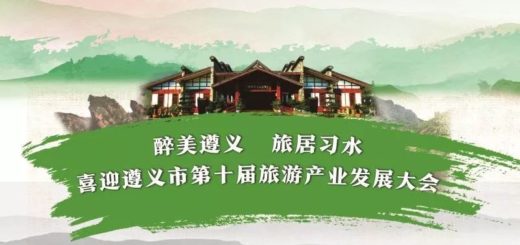EUROPAN 16 COMPETITION-LIVING CITIES
LIVING CITIES
METABOLIC VITALITIES – INCLUSIVE VITALITIES
Introduction
In the conditions of the Anthropocene –a new bio-geological period where human activities on the global scale have a destructive impact on life on earth– how to face climate change and inequalities? How to imagine other possibilities to inhabit the planet Earth?

The Europan 16 topic focuses on living cities as a new paradigm, in which new kinds of synergies can be considered between the environmental, biological, social, economic, cultural and political dimensions. This paradigm leads us to think in terms of co-evolution and interactions, and to work with regenerative project dynamics, combining metabolic and inclusive vitalities.
Metabolic Vitalities
Metabolic vitalities should help go over the opposition between city and nature, allowing the Europan projects –mixing architecture, urban design and landscape architecture– to identify and to negotiate with an ensemble of transformations. These transformations take natural elements into account like water, material flows, energy… which are all part of the life cycles. These new relations generate inhabited milieus. These milieus are considered as complex ecosystems creating flows (with entries and exits) and in constant evolution. Developing such cyclic processes (natural cycles, circular economy cycle) leads the design process to minimize the environmental footprint and the consumption of non-renewable energy, and to promote new forms of dwelling. Metabolic vitalities encourage design processes on different scales. The recycling competence, the enhancement of organic or energy material, the adaptation to climate change, the integration of nature and biodiversity are as many metabolic vitalities that Europan 16 sites should trigger to allow their own transformation into ecosystems between nature and culture. To be rewarded, the projects should translate this metabolic dynamic in their proposals.
Inclusive Vitalities
Urban environments are facing increasing inequalities and conflicts produced by invisibility, exclusion, marginalization, and inaccessibility to housing, to work, to education and to public services. To fight against these social fractures, inhabited milieus should become places where new inclusive policies and practices are supported. Inclusive vitalities put on the foreground modes of doing that can support territorial justice articulating social and ecological concerns. Issues of accessibility to public infrastructures and to housing should get a predominant role, promoting conviviality. Taking care of living environments could promote inclusion by transforming marginalised spaces into places of exchange, co-learning and biodiversity. This could allow new inclusive narratives of inhabited environments across scales and generations, promoting new forms participatory democracy. When choosing the sites, when defining the programmatic frames that come with their evolution, and when judging the participants’ proposals, Europan 16 will emphasise on the consideration of the inclusive dimension of the inhabited milieus.
Conclusion
If we want to face these social and environmental emergencies, we have to address new creative and responsible project dynamics, which should be able to reconnect with the cycles and rhythms of the living nature, associating metabolic and inclusive vitalities.
The Europan 16 sites should therefore consider these two dimensions in their transformation goals. How can the project spatialize and, at the same time, spare resources, common goods, recycling processes, hybridisations, sharing and the different temporalities?
This is the question raised to the competitors for Europan 16.
Questions on the sites and rules on the European website
- Friday June 18th, 2021 Deadline for submitting questions
- Friday July 2d, 2021 Deadline for answers
SUBMISSION OF ENTRIES
- Friday Sept. 17th, 2021 Deadline for the online submission of the projects
- Saturday Sept. 18th, 2021 Publication on the European website of a temporary list of submissions
- Thurs. Sept. 23th, 2021 Deadline for controlling submissions and publication of the final list of submissions
SELECTION
- Sept. 23th – Oct. 31th 2021 Shortlisting of entries by the national juries (20% max.)
- Beginning of Nov. 2021 European comparative analysis of the shortlisted ideas Forum of the Cities and Juries
- Nov. 7th – Dec.12th 2021 Final selection of entries by the national juries
RESULTS
- Monday Dec. 20th, 2021 Results announcement on the European website
- November 2022 Inter-Sessions Forum
PRIZES
Winners
Winners receive a reward of the equivalent of €12,000 (all taxes included) in the currency of the site’s country (at the exchange rate on the date of the announcement of the results). The organizers undertake to abide by the decisions of the national juries and to pay the reward within 90 days of the announcement of the results.
Runners-Up
Runners-up receive a reward of the equivalent of €6,000 (all taxes included) in the currency of site’s country (at the exchange rate on the date of the announcement of the results). The organizers undertake to abide by the decisions of the national juries and to pay the reward within 90 days of the announcement of the results.
Disputes
The Council of the Europan European Association, which is empowered to arbitrate, shall hear any dispute.
In the event of jurisdiction, this will take place in the respective country.
Europan Europe
16 bis rue François Arago
93100 Montreuil – France
+33 9 62 52 95 98
contact@europan-europe.eu
www.europan-europe.eu
EN, FR, ES
10h–17h (du lundi au vendredi)

徵選活動-520x245.jpg)

